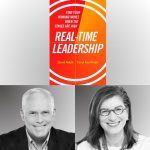Podcast Themes
Multiple perspectives on a topic that you are curious about!

Alan speaks about Bill’s role during some of his key transitions in his stellar career at Google. He speaks about the fact that despite his clarity of thought on the business front, when it came to making decisions for himself, there was an element of irrationality. Alan goes on to speak about Bill’s role in ensuring that Eric made sound choices at those crucial moments.

Alan speaks about how Bill got his Coachees to believe in themselves and how he often he had greater faith in them than they had in themselves. Alan goes onto talk about how Bill would play the role of a cheerleader in public settings to give a boost of confidence to the people he worked with.

Alan speaks about Bill Campbell’s journey and the various transitions he has been through – from being a Football Coach to becoming a Business Executive to Leadership Coaching where he worked with several luminaries such as Steve Jobs, Founders of Google, Eric Schmidt, Sheryl Sandberg, Al Gore. He also speaks about how Bill transitioned from one canvas to another and what stayed the same across these stints.

Alan speaks about a ‘Product’ that Bill might have accidentally invented in the way he went about doing his work – The notion of a ‘Team Coach’. He speaks about how Bill would spend time getting to know the individuals and the overall team to be in a position to be of value to the collective.

Alan speaks about some of the things that Bill Campbell did to earn the trust of the leaders he worked with. This is all the more incredible as he worked simultaneously with leaders who were involved in an intense competition in the market-place. He also speaks about the fact that Bill had made his money and did this as a service. He alludes to Bill’s radical candour which is encapsulated in the phrase “I don’t take cash, I don’t take stock and I don’t take s**t”.

Carol and David speak about how one could apply the MOVE framework in the context of Coaching. Carol speaks about how sometimes we can get sucked into the energy of the client and sometimes that can be counter-productive. David speaks about how as a Coach, he tries to generate many options to a certain situation and iterate their way forward.

Chris speaks about how Roger thought about his Coaches at various points in time and how he moved from Peter Carter to Peter Lundgren to Tony Roche to Paul Annacone to Stefan Edberg to Ivan Lubicic while having Severin Luthi as a constant in his team. He speaks about his judgment on some of these

Ethan speaks about how we could be effective in helping people deal with Chatter. He suggests that while we need to play a role of empathizing and listening to allow the person to vent, we also need to consider providing some coaching or widening of their perspective so that they could move forward. He speaks about the few people that he calls Chatter Advisors that he turns to where he gets a healthy balance of listening and Sounding Board support when he experiences Chatter. He speaks about some of the characteristics that leads them to be on his Speed Dial.

In my experience of having worked with leaders, I have realized that outcomes often depend on the mindset of the coachee than the skill-set of the coach.

Tarun speaks about how Entrepreneurs think about the Principal Agency problem when it comes to recruiting CEOs. Entrepreneurs are often playing the “infinite game” with the enterprise while the leaders they hire are often there for a stint. He speaks about the distinction between how developed markets like the US deal with it versus how Indian companies often deal with it.

Thomas speaks about the power of problem framing in the context of Coaching. The way we frame a problem can have a profound implication on the path we undertake.

Ayelet speaks about how we should think about “glass half full or empty” when it comes to motivating ourselves or others around us. Do we look at the ground we have traversed or the distance ahead? She speaks about the nuance involved here and when each of the approaches might make sense for us to motivate ourselves or others around us.